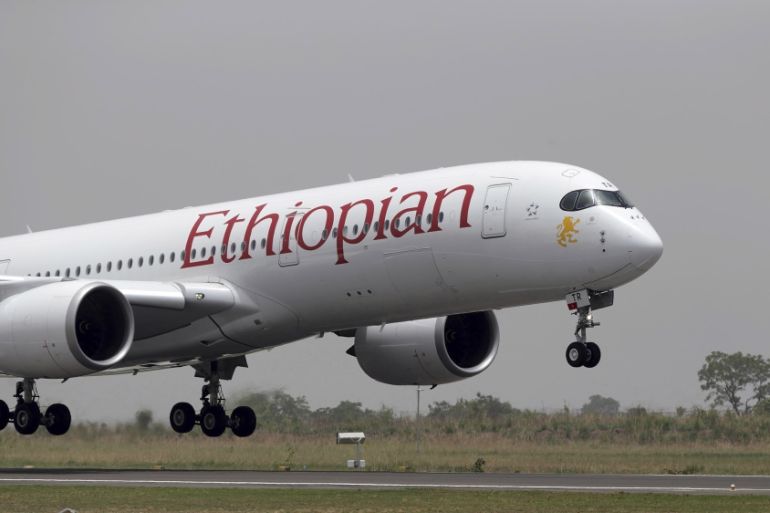Ethiopian Airlines: Africa’s largest air carrier
Ambitious expansion has allowed Ethiopian Airlines to outpace regional rivals to become biggest carrier on continent.

Since its establishment in 1945 as a joint venture with now-defunct US carrier Trans World Airlines (TWA), Ethiopian Airlines has gradually grown into one of Africa’s leading carriers.
The state-owned carrier has outpaced regional competitors Kenya Airways and South African Airways to become the continent’s biggest airline by revenue and profit, according to the International Air Transport Association (IATA).
Ethiopian Airlines has grown rapidly since launching in 2010 a 15-year expansion strategy to double its fleet to 120, leading it last year to revise that objective to 150 or more by 2025.
Last year, it surpassed the 100-mark in two major areas: the number of destinations served at 113, and the number of aircraft operated at 108.
Safety in African air travel has been improving in recent years, with IATA in November citing “two years free of any fatalities on any aircraft type” compared with an industry average of 0.19 for every million flights in 2018.
While Ethiopian Airlines has a relatively sound track record and seen as one of the continent’s safest, it has suffered a few incidents in the past couple of decades.
The most recent came when one of its newest planes, a Boeing 737 MAX 8 crashed on Sunday shortly after take-off from Addis Ababa, killing all 157 people on board.
Prior to that, the last major accident involving an Ethiopian Airlines passenger plane was a Boeing 737-800 that crashed into the sea after taking off from Lebanon in 2010, killing 83 passengers and seven crew members.
Fourteen years before that, 125 people were killed when a hijacked Ethiopian airliner carrying 175 ran out of fuel and crashed near the Comoros Islands in 1996.
Rapid expansion
Sunday’s crash comes as Ethiopia’s reformist prime minister, Abiy Ahmed, has vowed to open up the airline and other sectors to foreign investment in a major transformation of the state-centred economy.
Since the launch of its expansion plan, Ethiopian Airlines has had cumulative annual growth averaging 25 to 30 percent CEO Tewolde GebreMariam told Forbes.
In December 2011, it became part of Star Alliance, an airline network giving it access to more routes and sharing agreements with partner airlines.
In its 2016/17 financial year, Ethiopian Airlines generated $2.7bn in revenue, up more than 11 percent from the previous year.
Passenger numbers climbed by more than 18 percent to nine million last year, while net profit was $233m, up from a little more than $220m.
Ethiopian Airlines’ expansion also included the recent opening of a route to Moscow and the inauguration in January of a new passenger terminal in Addis Ababa to triple capacity accommodating up to 22 million passengers a year, making it the largest aviation hub in Africa.
Speaking at the inauguration, Abuy had challenged the airline to build a new “Airport City” terminal in Bishoftu – where Sunday’s crash occurred.
Vast route network
Aviation expert Alex Macheras said Sunday’s incident has focused attention on the safety of the aircraft rather than on the airline.
“Ethiopian Airlines is one of the safest airlines in Africa. They operate a vast route network and operation and are really respected internationally in terms of their safety standards worldwide. That is why they are allowed to fly all over the globe,” Macheras told Al Jazeera.
“They have suffered an accident with the Boeing 737 MAX which is the latest Boeing aircraft. Everyone is drawing the link between this aircraft and aircraft involved in the fatal accident in Indonesia five months ago,” he explained referring to the Indonesian Lion Air jet that crashed last October, 13 minutes after the take-off from Jakarta, killing all 189 people on board.
“If there are jitters across the world right now in terms of how passengers feel, it is more to do with the aircraft rather than the airline.”
In a statement released on Sunday, Ethiopian Airlines said it would be conducting an investigation to determine the cause of the accident, in collaboration with the aircraft manufacturer Boeing and Ethiopian Civil Aviation Authority.